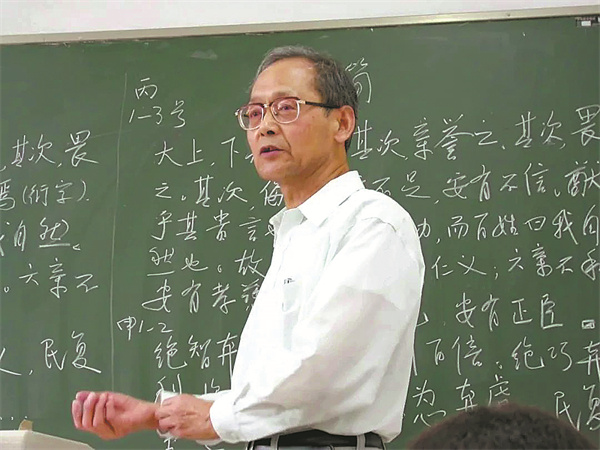Origin quest still inspires
Paleographer's decades of research lights the path for a new generation to follow, Wang Xin reports in Shanghai.
By Wang Xin | China Daily | Updated: 2025-04-15 08:39

International appeal
With such remarkable achievements, the center has earned a stellar reputation in the academic world both at home and abroad, attracting brilliant researchers from across the world over the past two decades. Overseas scholars from countries such as the United States, the United Kingdom, Japan, Singapore and France, continue to visit the center for academic communication and cooperation. And Olesia Volkova, a Russian researcher, became a new team member at the center two years ago.
Volkova started her life at Fudan University as a PhD student in 2015.In 2019, she obtained her degree from the center. In 2023, she returned to Fudan to join the center and to continue her comparative project on early writing. Her current research focuses on areas and eras of antiquity that witnessed the emergence of writing: Ancient Egypt, Mesopotamia, Early China, and Ancient Mesoamerica.
"I have been living in China for several years. In a distant past, this land gave birth to a distinctive, and in many ways unique, culture. All these years I have been studying the earliest excavated texts — inscriptions written on bone and bronze vessels during the later period of the Shang Dynasty (c. 16th century-11th century BC), or 1230-1045 BC.These inscriptions are valuable sources of early Chinese thought in their own right. But at the same time, they reveal remarkable cross-cultural similarities that remind us about a shared nature of human society, and they are, indeed, worth reconsidering under a comparative perspective," says Volkova.
She points out that the early civilizations have traditionally been viewed as entities separated from the rest of the ancient world. However, recent archaeological work provides a quite different picture: The early civilizations did interact with neighboring societies and remote lands. And it is not surprising that a cross-cultural comparison has already become a trend in such fields as ancient history, archaeology and anthropology.
"The invention of writing remains one of the many unsolved mysteries of humanity. Our present knowledge of how writing was created in China, or elsewhere in the ancient world, is still far from clear. The surviving archaeological materials from the beginnings of civilization (in each of the four areas of the ancient world) are not enough to answer the question of where and when writing was invented," she adds.
At the center, Volkova is always surrounded by support and enjoys sharing ideas with her colleagues. She believes that this process itself is fundamental for her personal and professional growth, and hopes that one day she will share what she has learned from the center with her colleagues and friends in Russia.
























